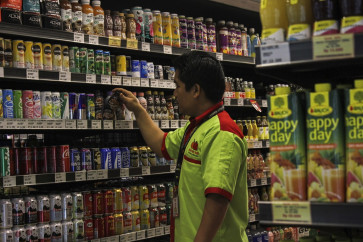Study on Benoa Bay development not final: Udayana University
Following a report on the issuance of a permit to develop and reclaim part of Benoa Bay in South Bali, Udayana University has insisted that the feasibility study conducted by a team of experts was not finished and could, therefore, not be used by the Bali provincial administration to issue a development permit
Change text size
Gift Premium Articles
to Anyone

F
ollowing a report on the issuance of a permit to develop and reclaim part of Benoa Bay in South Bali, Udayana University has insisted that the feasibility study conducted by a team of experts was not finished and could, therefore, not be used by the Bali provincial administration to issue a development permit.
In a closed-door meeting, the university's rector, his staff and team of experts discussed widespread news of the feasibility report that apparently prompted Governor Made Mangku Pastika to issue a permit to PT Tirta Wahana Bali International to reclaim and develop Benoa Bay as a major tourist destination.
PT Tirta Wahana Bali International is reportedly controlled by noted businessman Tomy Winata, and the company that built Discovery Shopping Mall in Kuta and many other huge developments in Bali and other cities.
Governor Made Mangku Pastika admitted on Tuesday that he had issued a permit granting PT Tirta Wahana Bali the right to reclaim and develop Benoa Bay.
In a meeting with journalists on Tuesday morning, Pastika said the issuance of the letter was based on a recommendation by the Bali Legislative Council and a feasibility study conducted by Udayana University.
In 2012, university rector Made Bakta signed a memorandum of understanding (MoU) with PT Tirta Wahana Bali International to conduct a feasibility study on the development of Benoa Bay.
The university commissioned its Community Empowerment and Research Study Center to conduct the study. The team, led by Ketut Sariawan, confirmed that the team had not completed the study. When completed, the team will first submit the results to the rector, who will send it to the government.
Agung Suryawan, chairman of the university's culture and tourism study center, reminded the government that a moratorium on the development of tourist facilities had been in place for two years.
It is thought that development projects in South Bali would add environmental burdens to the area, such as water shortages, pollution and worse traffic jams.
'Development projects should be conducted in other areas outside South Bali. It could be in North or West Bali, 'Suryawan said.
Meanwhile, Sakabawa Landra, secretary of the university's law school's post graduate program, explained that in terms of ethics and good governance, all such documents should be published to enable the public to be fully informed.
In the case of the Benoa Bay development permit, there must be a final report on the feasibility study, an Environmental Impact Analysis (Amdal), before the government can issue a permit.
Bali provincial administration issued a permit in gubernatorial letter No. 2138/02-C/HK/2012, dated Dec. 26, 2012. Meanwhile, the recommendation letter was issued and signed by council speaker Ratmadi on Dec. 22, 2012.
PT Tirta Wahana Bali International is one of four investors competing to develop major tourist sites in Benoa Bay. The other three investors are PT Bangun Segitiga Mas, PT Wijaya Property and PT Garuda Jaya.
PT Tirta Wahana Bali International plans to reclaim the western part of Tanjung Benoa and areas near Benoa Harbor.
The investor intends to build facilities on 50 percent of the reclaimed land and leave the remaining area as a green zone. The huge reclamation project would see the development of luxury tourist facilities, including a Disneyland-like theme park, apartments, hotels, villas, an international hospital and entertainment centers. In the gubernatorial letter, the company was granted the right to manage 838 hectares for 30 years with the option of a 20-year extension.
The governor has often said the development and reclamation of Benoa Bay would bring prosperity to the people of Bali and would prevent the island from natural disasters, including tsunamis.
Many experts from the university have slammed the governor's reasoning, saying it was aimed merely at supporting his move in favor of the investor.
I Gusti Bagus Wijaya Kusuma, chairman of the university's industry and energy research and study center, elaborated that using natural disasters as a reason for issuing the permit was groundless.
'The team has not finalized the report, but any tsunami-prone areas in Bali would be in North Bali and near Ngurah Rai International Airport,' he said.
'The development of Benoa Bay is based on economic reasons,' the professor said as quoted by local media.









